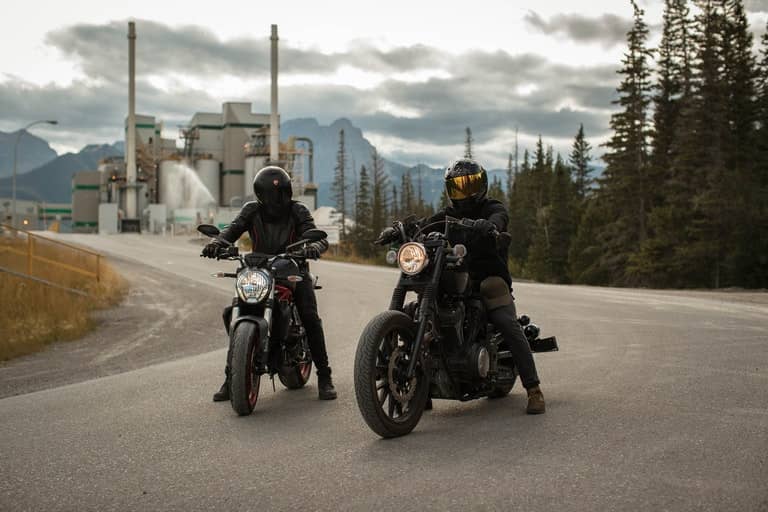
8 Motorcycle Safety Tips to Protect Yourself in West Virginia
Motorcycle accidents can be devastating. In 2019 alone, 5,014 riders died and another 84,000 were injured in motorcycle accidents in the U.S. There is no telling when a crash will happen. However, there are certain precautions you can take to reduce the risk and impact of a collision. This will help to protect both you and other road users. Whether you are a beginner or a seasoned biker, there are a few motorcycle safety tips you should know before heading out for a ride.
Read on to learn more.
IMPORTANT MOTORCYCLE SAFETY TIPS
The first step to ensuring you safely enjoy your ride is to understand West Virginia motorcycle laws. In addition, you need to work on becoming a more responsible rider. Here are eight motorcycle safety tips to protect yourself.
UNDERGO PROPER RIDERS’ TRAINING
Operating a motorcycle safely requires skills and good judgment. To learn the rules of the road, best practices for staying safe and how to respond to and handle emergencies, consider taking a motorcycle safety course. If you are a new rider, undergoing proper training will enable you to get your motorcycle license. For more experienced riders, an advanced riding course will give you an opportunity to practice and enhance your skills.
SELECT THE RIGHT BIKE
Choosing the right motorcycle for you requires that you think about more than just aesthetics and style. A motorcycle that will contribute to your safety will fit you properly and be comfortable for you. Make sure you can reach the controls easily and that both feet are firmly planted on the ground when you sit on the motorcycle. When selecting a bike, look at the overall power, the bike weight, the seat height and the type of intended riding.
INSPECT YOUR MOTORCYCLE
Before hitting the road, conduct pre-ride checks to ensure your motorcycle is safe and roadworthy. Check the tire pressure, lights, mirrors, brakes and horn. Also, look out for any leaks, loose bolts and other mechanical hazards that could compromise safety.
In addition, stay on top of routine maintenance and service. This includes conducting oil changes, adjusting the controls, adjusting the chain and suspension, and checking tire quality to ensure your bike is as safe as possible.
WEAR SAFETY GEAR
The right safety gear will provide your body with the extra protection required to avoid serious injuries in case of an auto accident. Motorcycle gear can also protect you from road rash, debris, the elements and other road hazards. As such, it is important to wear safety gear whenever you are riding your bike. Protective gear includes:
- A DOT-approved helmet
- Non-slip gloves
- Leather jacket and pants
- Boots that cover your ankles
WATCH THE WEATHER
Riding a motorcycle is more dangerous than driving a car. This is particularly true when riding in the rain, snow or ice. Because motorcycles have only two wheels, they have less traction than cars. Similarly, motorcycles do not have windshield wipers, something that can greatly compromise your visibility.
To be a safe rider, check the weather and know your limits. This way, you will be better able to avoid bad weather that could compromise your ride and present safety hazards.
MAKE SURE YOU ARE VISIBLE
Because motorcycles have a narrow profile, it can be difficult for car and truck drivers to spot them. Similarly, riders will find themselves in a car’s blind spot from time to time. To increase your riding safety, make sure you are visible. You can do this by wearing bright colors, wearing reflective clothing at night, staying out in the open and using your horn. Finally, remember to ride defensively.
OBEY TRAFFIC RULES
It goes without saying that following traffic rules will help to keep you safe on the road. Be sure to use your turn signals properly, obey traffic signs and observe speed limits. Also, avoid distractions, watch out for hazards, maintain a safe distance and ride predictably. Before every ride, stay sober and ensure you get enough rest.
CARRY A FIRST AID KIT
Accidents can happen when you least expect them. In order to be prepared, carry a well-stocked first aid kit at all times. The first aid kit will come in handy in case of injuries.
Lastly, educate your passengers on the importance of safety and their role in promoting safety on the road.
WHAT TO KNOW IN ADDITION TO THESE MOTORCYCLE SAFETY TIPS
There are many causes of motorcycle collisions. To protect yourself, it is important to know what to do after a crash. Below are the steps to take after a motorcycle accident in West Virginia.
- Move to a safe spot if you can
- Call the police and file a police report
- Seek medical care as soon as possible
- Document the scene and gather other evidence
- Report the accident to your insurer
- Consult with a lawyer
These motorcycle safety tips to protect yourself, will not only help to protect you but also go a long way in ensuring you enjoy your ride. However, accidents can still happen despite your best efforts. If you have been in a motorcycle crash, get in touch with an experienced motorcycle accident lawyer as soon as possible.

